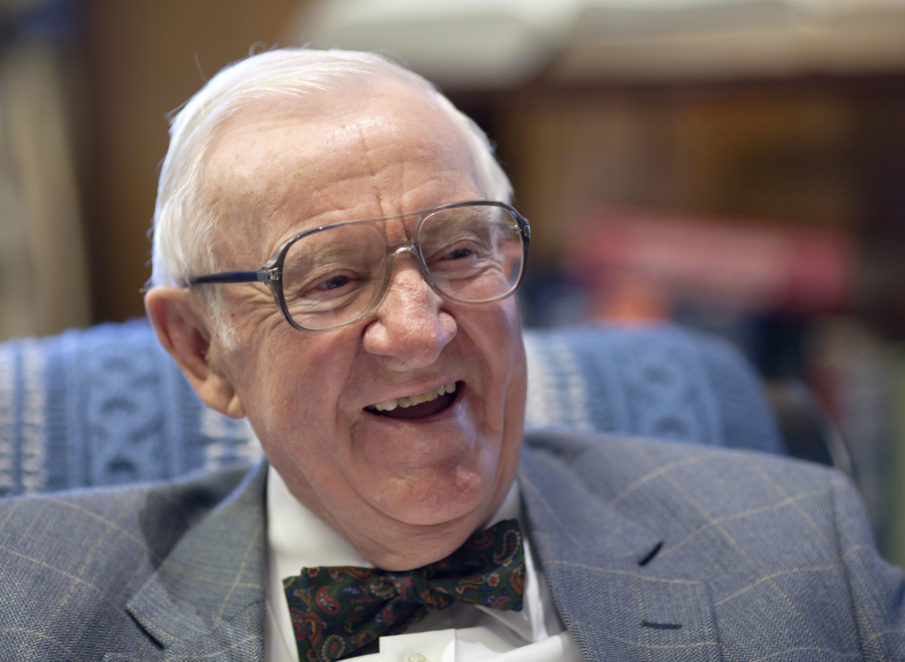I’d warn my Lefty friends to hold off on putting those Justice Stevens posters up on their walls quite yet, however. Stevens’ position on gun control isn’t a recent development born out of Americans mobilizing in the streets to demand gun reform. This position, and at least five others like it, were actually the focus of a book the man wrote four years ago… a book that’s still on shelves and is likely seeing a resurgence in sales thanks to his newfound popularity among young liberals.
That book, entitled, “Six Amendments: How and Why We Should Change the Constitution,” is a framework for how Stevens wants the Constitution rewritten to better suit his own personal ideologies. Admittedly, some of what he calls for seems like it could potentially benefit Americans, but some of it seems born of academic and idealistic views that fail to appreciate how the real world world works: a common criticism of those who simply think about things, levied by those who actually go outside and do them.
While Steven’s new support for anti-gun movements like the March for Our Lives could be seen as a joining of ideologies, many of the changes to the Constitution Stevens champions are not in keeping with the progressive mindset – meaning that, well intentioned as his support may be, it’s more likely that he’s penning OpEds and giving interviews in the interest of book sales, rather than advancing the political agendas of those he’s throwing his support behind.
For instance, one change to the constitution Stevens calls for in the book, in the interest of ensuring states abide by federal firearms regulations, would be to get rid of a doctrine called “anti-commandeering.” In effect, that doctrine says that the federal government can’t force states to comply with laws established on the national level. Stevens claims this would help to prevent mass-shootings by making sure states followed federal firearms statutes.
Of course, in practice, doing away with this doctrine would also make marijuana illegal again in every state where it has been legalized for medical or recreational use. As soon as the anti-commandeering doctrine was done away with, the federal government could sue each state that has legalized marijuana and return the schedule one drug to its previous place as legally considered just as bad as heroin or cocaine. Not quite the cause most young liberals are hoping to champion.
Stevens also wrote at length about changing the Constitution to include language that bars the use of the death penalty in American justice systems, to end gerrymandering, and to permit individuals to sue the states they live in.
Honestly, some of the things Stevens opines about seem like a good idea – gerrymandering, for instance, is near the top of my list (along with lobbying) as among the biggest problems with our modern form of democracy, but at the end of the day, that just means this one man’s opinion of gerrymandering and my own sync; it really doesn’t mean anything more than that.
Eight weeks after doctors filleted my right leg to insert an ACL and PCL out of a cadaver, I was cleared to start walking again. Within two days, I had broken a the top of my tibia off, where the screw they had inserted along with an ACL that proved to be too short for my body had created a lever of sorts. In the doctor’s professional opinion at the time, of course, it should have been fine.
The doctor wasn’t inept, he had glowing reviews on all the important websites, a wall full of diplomas and certificates and decades of experience helping athletes get back on their feet. It just so happens that the guy was also a human, and therefore, capable of being wrong.
Law, like medicine, is complicated and full of variables – that’s exactly why both sides of most legal issues bring in experts to argue on their behalf. Complex as the subject matter is, however, most legal proceeding move forward based on two very basic understandings: first, that both parties believe themselves to be in the right; and second, that in the eyes of the law in most cases, only one truly is.
Even at the Supreme Court, where Stevens earned the accolades he’s being traded on in the mainstream media, most decisions breakdown to either a unanimous 9-0 vote, or a 5-4 vote based on party lines. That means that it is entirely common for the law of the land to reflect not the timeless wisdom of legal oracles ruling from high atop a moral and ethical throne… but rather the decisions of normal people swayed by the politics of their day. Stevens is no different.
So, when I see headline after headline talking about a 97 year old lawyer that thinks the Constitution should be rewritten to his liking, you’ll have to excuse me if I seem a bit dismissive. I’ve seen too many “experts” get too many things wrong throughout my life to simply trust in the experience of well intentioned retiree, and accept his argument at face value. When you read it, line by line, it sounds a lot more like what it is: The opinion of a well spoken man with no bearing on how the real world works.
I respect the service any Supreme Court Justice does for our nation, regardless of political leaning, and further, I even respect their opinions… but ultimately, opinions are just like assholes.
Everybody’s got ‘em, even retired Supreme Court Justices.
Image courtesy of the Associated Press










COMMENTS